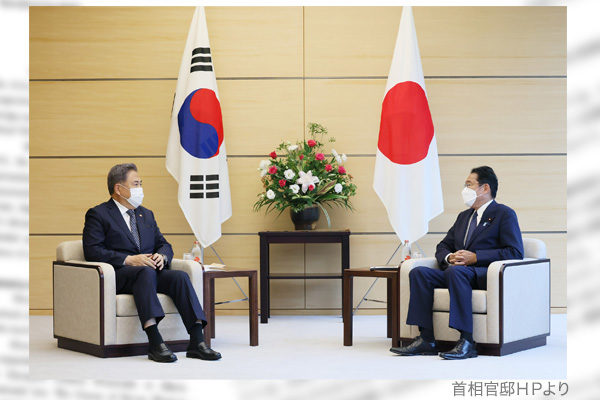How would Japan-South Korea relations be in the wake of the recent South Korean government change? I would like to consider the question while reviewing the history of bilateral relations over the past 70 plus years.
The historical awareness problem between Japan and South Korea emerged in the 1980s and has escalated since the comfort women issue appeared in the 1990s.
Although any problem related to awareness may be difficult to resolve, the reason the problem has been increasingly complicated is that South Korea has engaged in emotional arguments and teared up bilateral agreements. South Korea has taken various approaches to dredge up the wartime comfort women and Korean workers issues.
Assertions have remained unchanged over 70 years
Let’s look back to earlier years. I read South Korean newspapers from Japan’s World War II defeat on August 15, 1945, to the breakout of the Korean War on June 25, 1950. I found that assertions and events in the period are surprisingly similar to those at present.
For instance, newspaper stories said that requisitioned workers (whether they were requisitioned by Japan under its National Requisition Ordinance is unknown) claimed compensations. Headlines included the word “coercive requisition” indicating forceful recruitment.
Some unrest may have been inevitable amid the chaos just after World War II. A book written in Japan about Japanese who evacuated from the Korean Peninsula said Koreans surrounded Japanese companies and government offices in Korea, causing great disturbances (some purposeful groups might have been involved in the flutters).
Did not Japan and South Korea reach agreement in 1965 on the normalization of their relations to adjust various interests after twists and turns?
Newspaper articles before the founding of the Republic of Korea covered many stories about Korean activists who returned home from abroad. During World War II, these activists engaged in anti-Japan movements in collaboration with the Soviet Union, China (both the Kuomintang and the Communist Party) and the United States. These articles lead me to understand why comfort women statues have been placed in Europe and the United States as well as in South Korea.
Any rebuttal from the Japanese side has been blamed as ravings, leading Japan to end up making concessions. This pattern of bilateral dealings has been repeated.
Don’t be swayed by temporary softening
South Korea’s attitudes about Japan have remained largely unchanged over a long term. How the attitudes surface depends on the status of bilateral relations reflecting the changes of international situation. The governmental shift from leftist Moon Jae In to conservative Yoon Suk Yeol cannot be expected to bring about any immediate turnaround in Seoul’s attitudes towards Japan.
The Yoon government has recently sent Foreign Minister Park Jin to Japan, indicating its hope to improve bilateral relations that have extremely deteriorated on the previous regime’s revival of the wartime Korean workers issue that had already been settled. However, I wish that Japan should depend on historical facts and past bilateral agreements and uphold its principled position without being swayed by temporary changes on the South Korean side.
Nobuko Araki is a Korea researcher and a member of the Planning Committee at the Japan Institute for National Fundamentals.


